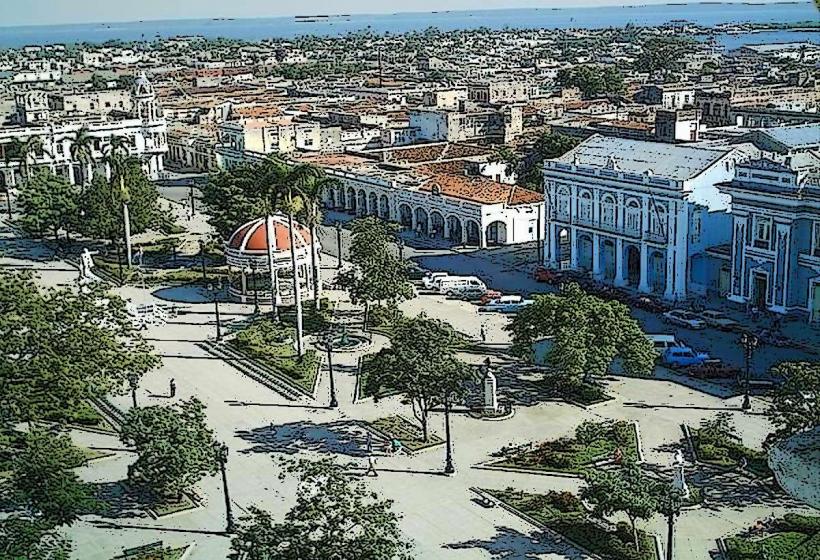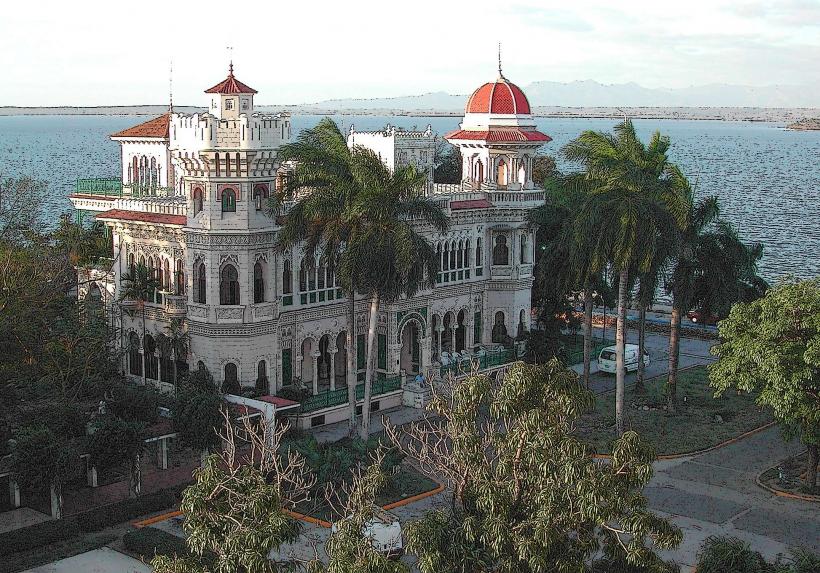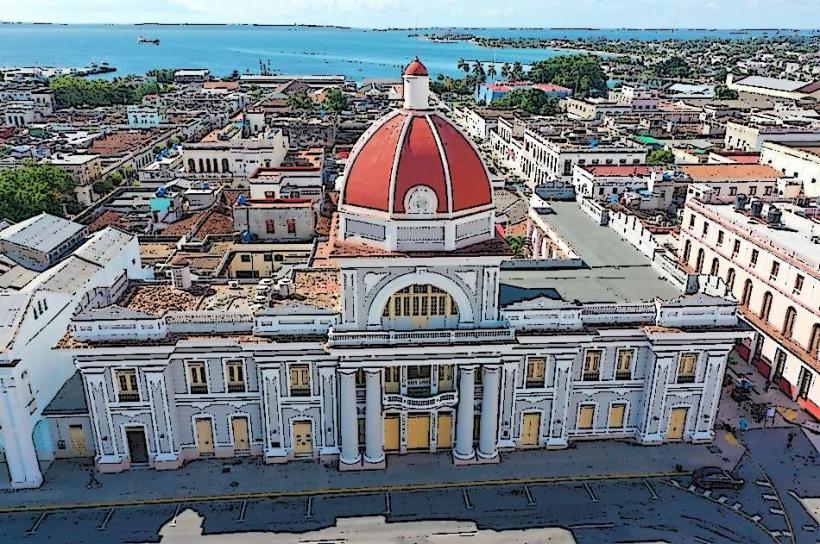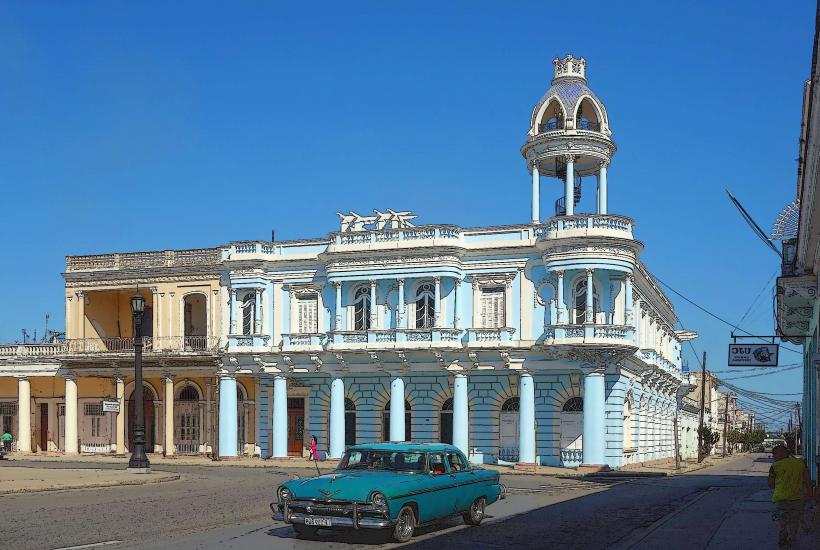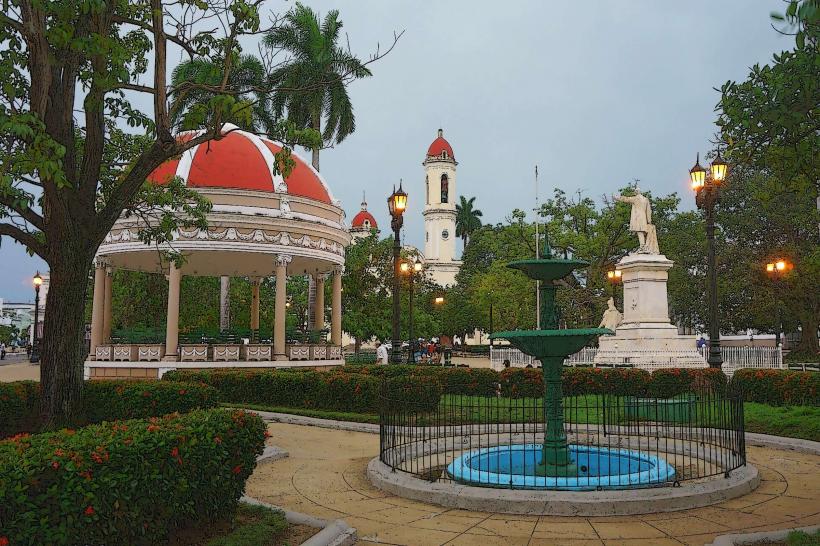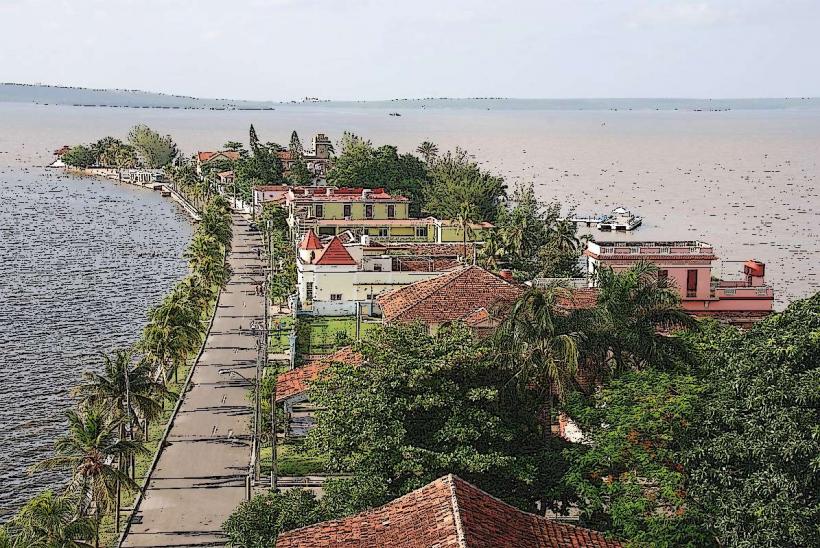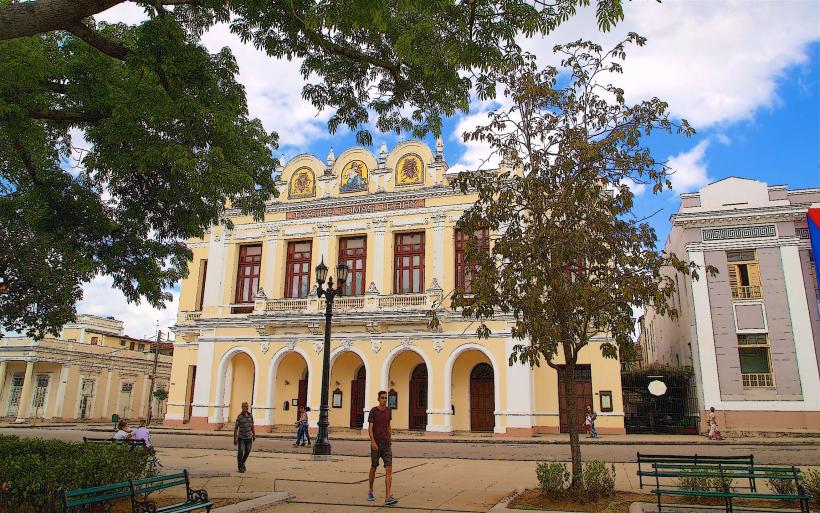Information
Landmark: Castillo de JaguaCity: Cienfuegos
Country: Cuba
Continent: North America
Castillo de Jagua, Cienfuegos, Cuba, North America
The Castillo de Jagua (Fortress of Jagua) is a historic and important landmark located at the entrance of Cienfuegos Bay, Cuba. This imposing fortress has played a crucial role in the defense of the region during the colonial period and is now one of Cienfuegos' most visited attractions, offering a fascinating glimpse into the island's history and military architecture. Here are the key details about the Castillo de Jagua:
Historical Background:
- Construction: The Castillo de Jagua was built between 1745 and 1774 by the Spanish colonial government as part of efforts to defend the bay and the surrounding region from pirate attacks and foreign invasions. Its construction was ordered by King Ferdinand VI of Spain, who recognized the strategic importance of the bay for both commercial and military purposes.
- Purpose: The fortress was designed to protect the entrance to Cienfuegos Bay and the port of Cienfuegos from external threats. The bay, with its deep waters and proximity to key shipping routes, was a prime target for pirates and enemy navies during the 18th century. The fort's main purpose was to defend the region’s vital trade routes, particularly the sugar trade, which was a major economic driver at the time.
- Strategic Importance: The castle’s location was carefully chosen for its commanding views over the bay and the surrounding coastline, making it an ideal spot for surveillance and defense. It was also part of a network of fortifications along the Cuban coast that were built to safeguard Spanish colonial interests.
Architecture:
- Design and Structure: The Castillo de Jagua is a military fortress designed in a classic Spanish colonial style. It features thick, robust walls made of limestone and other durable materials to withstand artillery fire and attacks. The fortress has a rectangular shape, with its thick walls enclosing a central courtyard.
- Defensive Features: The castle is equipped with several defensive elements, including bastions, moats, and cannon placements along the perimeter. The fort’s walls are punctuated by small windows and gunports, allowing soldiers to fire upon invaders while staying protected behind the walls.
- Watchtowers: The fortress features several watchtowers at each corner, offering panoramic views of the bay and surrounding landscape. These towers provided excellent vantage points for spotting enemy ships or approaching threats.
Role and History:
- Defense Against Pirates: The Castillo de Jagua was primarily built to defend against pirates, who were a constant threat to Spanish colonies in the Caribbean during the 18th century. The castle was also a deterrent to foreign powers, such as the British and the French, who sought control of the valuable sugar trade in Cuba.
- Later Use: After serving its primary function as a military defense structure, the fort’s role diminished as new technologies and military tactics made such fortifications less relevant. Over the years, the castle saw less military use, and by the 19th century, it became largely abandoned.
- Restoration and Museum: Today, the Castillo de Jagua has been restored and converted into a museum that showcases the history of the fortress, its construction, and its role in the defense of Cienfuegos. The museum also features exhibits related to the military history of Cuba, colonial life, and the Cuban Revolution. Visitors can explore the fort’s interior, including the ramparts, dungeons, and old cannons that once defended the bay.
Visitor Experience:
- Scenic Views: One of the main attractions of the Castillo de Jagua is its stunning location at the entrance to Cienfuegos Bay. The fortress offers breathtaking views of the bay, the coastline, and the surrounding landscapes. Visitors can take in the panoramic scenery from the castle's bastions and watchtowers, making it an excellent spot for photography.
- Guided Tours: Visitors to the castle can take guided tours of the fort, which provide in-depth explanations of its history, architecture, and military significance. Knowledgeable guides offer insights into the castle's role in Cuba's colonial defense and its place in the larger context of Cuban history.
- Museum Exhibits: The museum inside the Castillo de Jagua showcases artifacts from the colonial period, including military uniforms, weapons, and historical documents. Visitors can learn about the military strategies of the time, the fort’s construction process, and its strategic importance in the defense of Cuba. Exhibits also explore the historical context of piracy and colonial conflict in the Caribbean.
Accessibility:
- Location: The Castillo de Jagua is located on the Jagua Point, at the mouth of Cienfuegos Bay, about 5 kilometers (3 miles) from the city center. It can be reached by car, taxi, or boat, with several boat tours available from Cienfuegos Harbor to the castle.
- Opening Hours: The castle is open to visitors throughout the week, though hours may vary depending on the season. It is advisable to check local schedules or book tours in advance.
- Boat Access: Visitors often approach the castle by boat, as it is located at the bay's entrance. Taking a boat ride to the fortress adds an extra layer of excitement to the visit, offering views of the coastline and the fortress from the water.
Cultural and Historical Importance:
- UNESCO World Heritage: The Castillo de Jagua is an important part of Cuba’s colonial heritage and contributes to the historical landscape of Cienfuegos, which is a UNESCO World Heritage Site. The fortress is integral to understanding the city’s defense system during the colonial era and the broader history of Cuba’s struggle for independence.
- Cuban Identity: The Castillo de Jagua is a symbol of Cuba's colonial history, its military past, and its resilience against external threats. It is a representation of the strategic significance of the island in the broader Caribbean context and its role in the fight for independence.
Conclusion:
The Castillo de Jagua is a fascinating historical landmark that offers visitors a glimpse into Cuba's colonial past, military defense strategies, and the rich history of the region. Its stunning location, rich architectural features, and role in the defense of Cienfuegos make it a must-visit attraction for anyone exploring the city. Whether you are interested in military history, architecture, or simply enjoying breathtaking views of Cienfuegos Bay, the Castillo de Jagua offers a memorable experience for all visitors.

